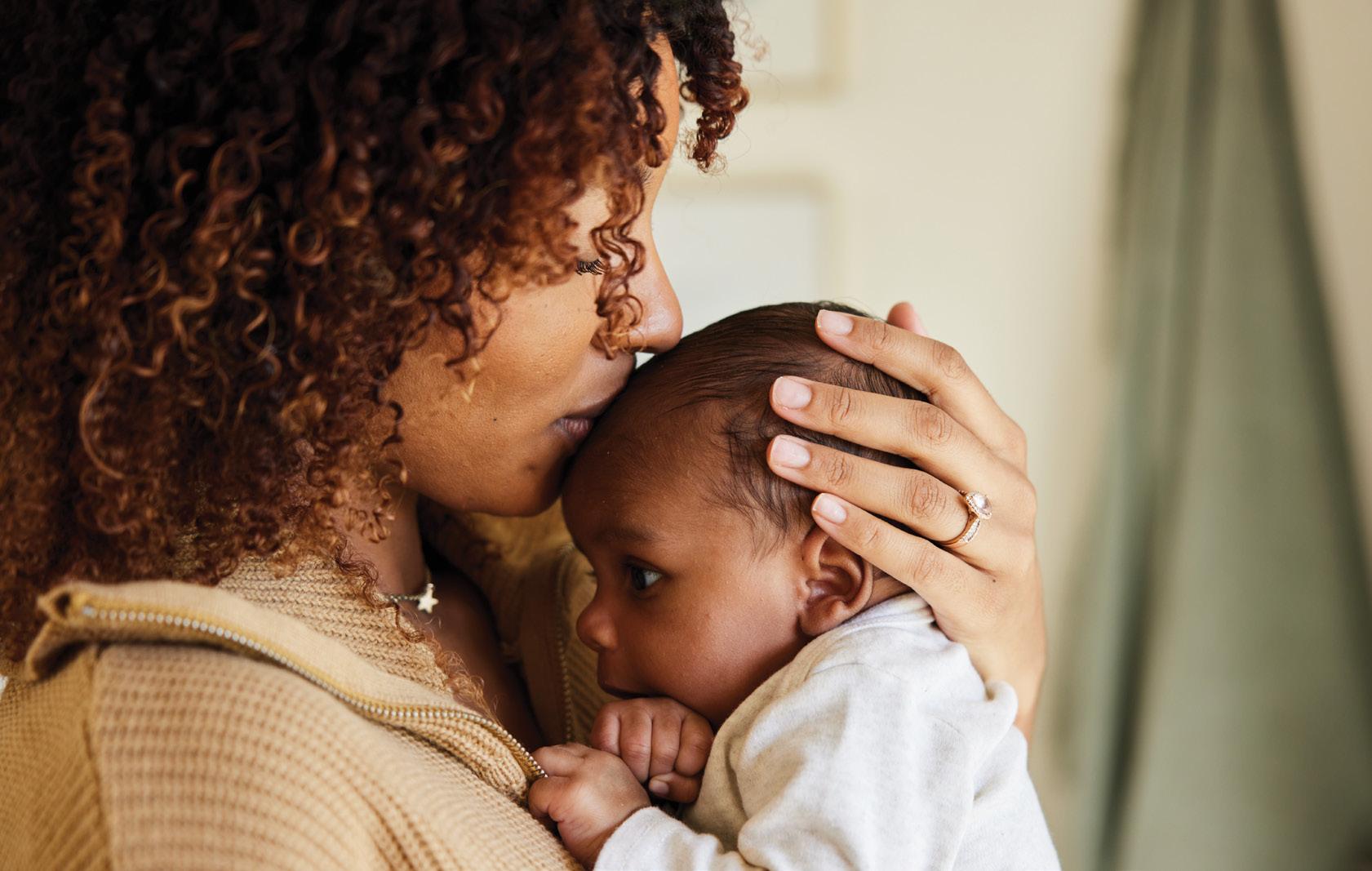
1 minute read
PEACE OF MIND PEACE OF MIND
What You Don’t Need to Worry About with Your Baby
When it comes to caring for your baby, it’s natural for parents to have concerns and worries. However, there are certain things that you don’t need to overly stress about. Here are a few aspects that you can put your mind at ease about when it comes to your baby.
Newborn Appearance
Newborn babies often have unique physical characteristics that may cause parents to worry. It’s important to remember that many of these features are completely normal and temporary. For example, a baby’s head may appear misshapen due to the birthing process, but it typically resolves within a few weeks. Similarly, babies may have skin blemishes, such as baby acne or milia, which tend to disappear on their own. These features are part of the normal development process and generally require no intervention.
Variations In Sleep Patterns
Newborns have irregular sleep patterns, and it’s common for them to wake frequently during the night. While it can be exhausting for parents, it’s important to understand that it is normal for babies to have shorter sleep cycles and a higher need for nighttime feeding. As they grow, their sleep patterns will gradually develop and become more predictable. Establishing a soothing bedtime routine can help promote better sleep habits over time, but don’t be overly concerned if your baby’s sleep doesn’t align with a specific schedule early on.
Developmental Milestones
Each baby develops at their own pace, and there is a wide range of variability in reaching developmental milestones. While it’s essential to monitor your baby’s growth and development, remember that there is no need to compare them to other babies. Some infants may reach certain milestones earlier, while others may take a bit longer. As long as your baby is progressing and meeting milestones within a reasonable timeframe, there is usually no cause for concern.
Crying
Crying is a primary means of communication for newborns. It’s their way of expressing hunger, discomfort, tiredness, or other needs. It’s important to respond to your baby’s cries and provide comfort and care. However, it’s worth noting that it is normal for babies to cry for extended periods, especially during the first few months. This does not necessarily indicate a problem, and sometimes babies cry simply because they need to release tension or seek soothing. Utilize comforting techniques such as swaddling, gentle rocking, or skin-to-skin contact to provide comfort during these times.
Remember, if you have specific concerns or notice any significant changes in your baby’s health or behavior, it is always a good idea to consult with your pediatrician or healthcare provider. They can offer guidance, reassurance, and address any specific issues that may arise. Trust your instincts as a parent and enjoy the journey of watching your baby grow and thrive. OP












